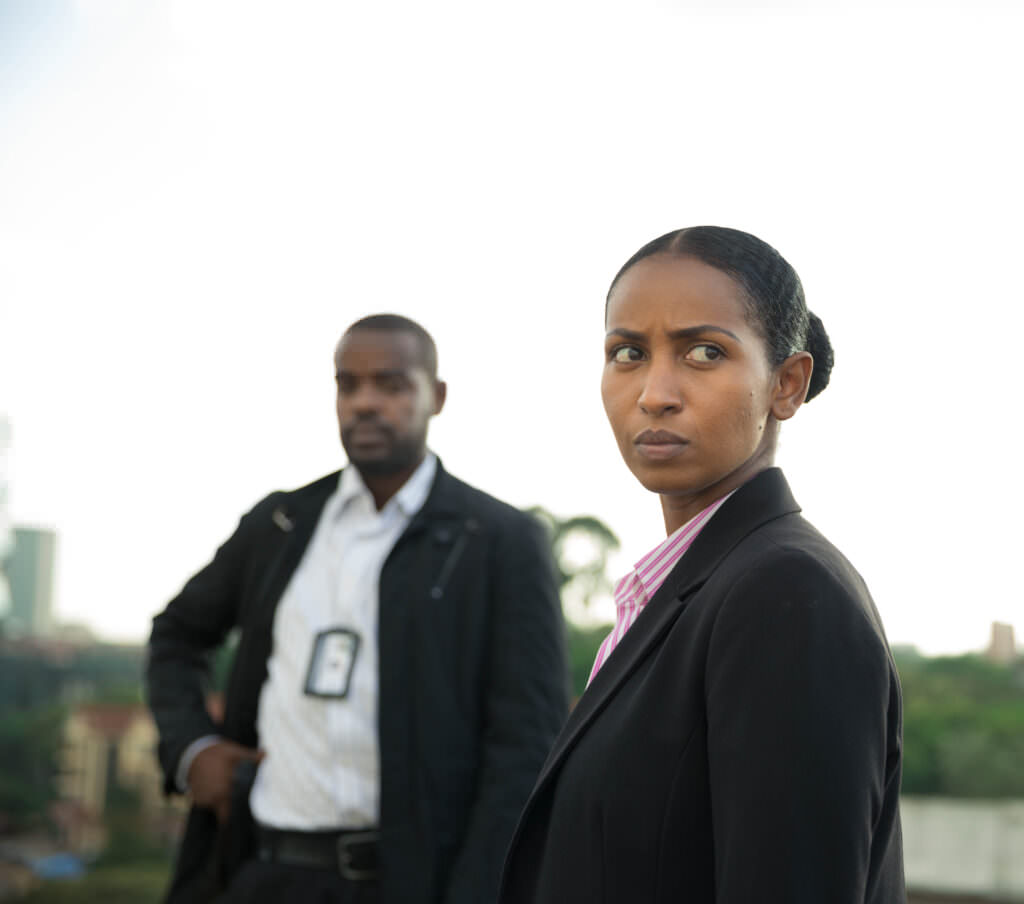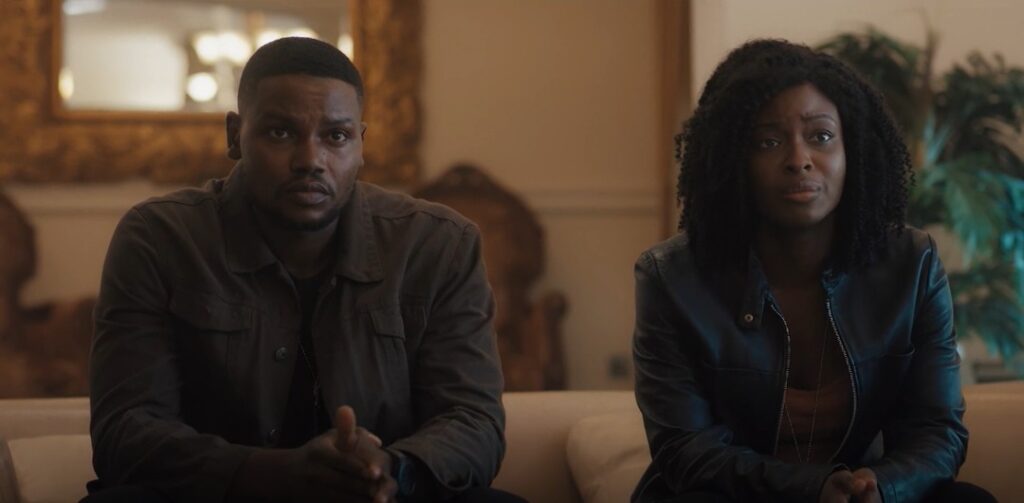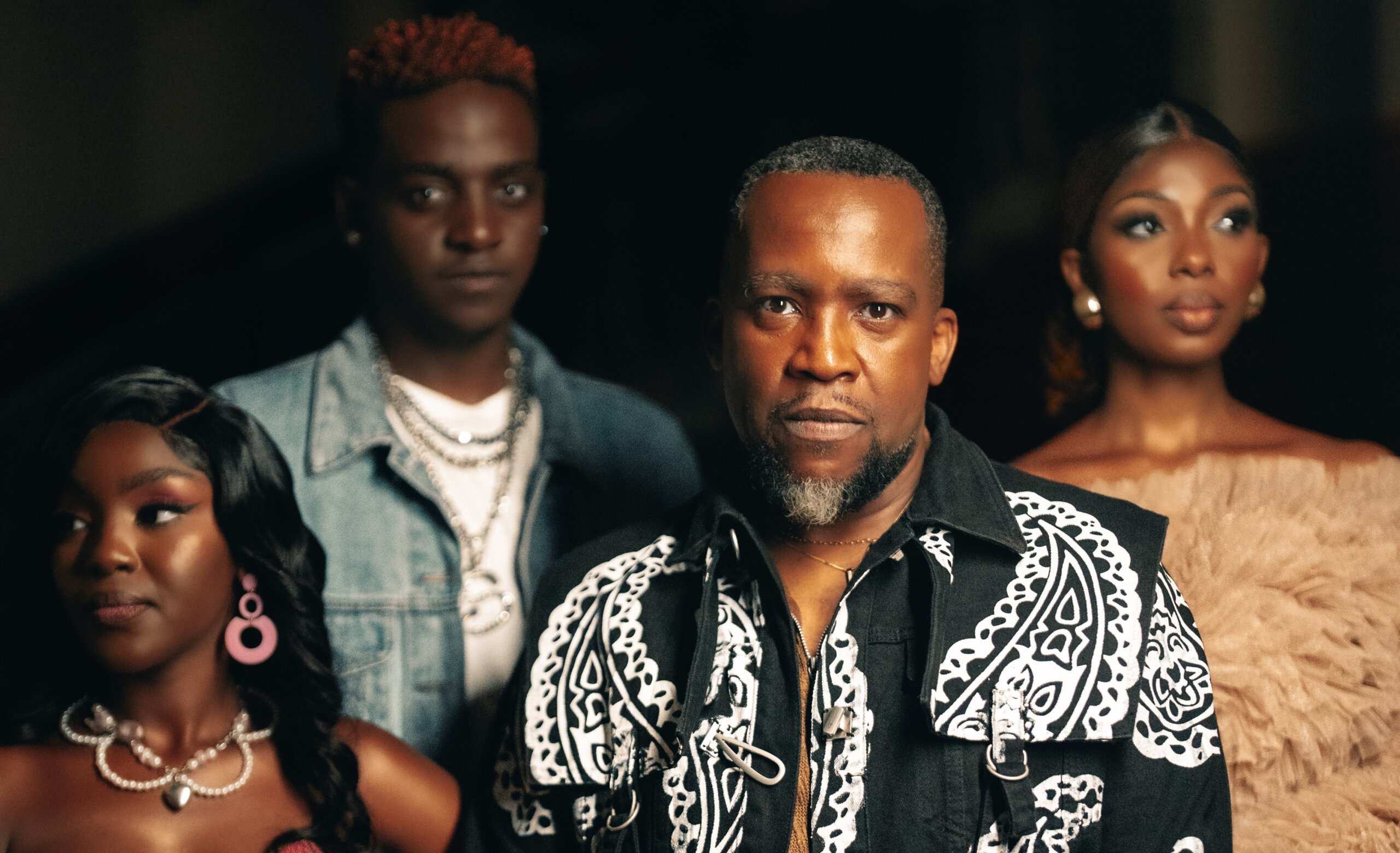Crime and Justice is one of the few African police procedurals around. It’s certainly the most visible one, being one of Showmax’s biggest assets, so much so that at the tail end of 2022, the streamer exported the Kenyan series to Nigeria with Crime and Justice Lagos. Perhaps the beginning of an African franchise? Time will tell. Kenya’s Crime and Justice was launched in 2021 as the first Showmax original title in Kenya and the streamer’s first co-production with global broadcaster CANAL+ Group.
These kinds of shows are made for unwinding after a long day at work; there’s only a vague overarching story, and most of the time, the plots are limited to an episode a piece. One case an episode, usually. This format covers myriad themes within a season, sadly sometimes disjointed, but various themes nonetheless.
In Kenya’s Crime and Justice, led by Sarah Hassan and Alfred Munyua as the detective duo of an elite police force, each episode is dedicated to the people the story addresses at the end of the episode. For instance, in ‘Primal’, an episode that involves the sexual abuse of a minor and the subsequent failure of the legal system in dealing with a victim who murdered her abuser – her father, it ends with: “Dedicated to victims of sexual and domestic abuse.” Watching this, I was flabbergasted by the gall and the audacity these filmmakers have to dedicate such pity porn to real victims of these horrific injustices. Especially when the episode seems to be indicating that the system is fundamentally sound through its most rational character, Prosecutor Sokoro (played wonderfully by Paul Ogola), and offers no redemption, subtle or not, for these wronged characters.
I don’t think there’s any purpose to re-enacting atrocities in a cool sterilised procedural that’s supposed to glamourise the detectives but fails because the detectives working to solve the cases are a little bit incompetent (which begs the question of why we’re following these two), and then adding a title card at the end to throw it back in the faces of real victims. This doesn’t make it seem ‘important,’ it only confuses and probably offends. I wonder whether it occurred to the makers of Crime and Justice that a much better tribute to these victims would be in the way of some kind of vindication – translating the story of their real-life trauma to the screen as a story of triumph. Their story as it should’ve been, not as it was. Were I a victim of these crimes, I’d appreciate that more.

So that I’m not seen as being overly nit-picky, I’ll highlight yet another episode from season one that offended me just as much. Titled ‘Pride’, the episode features a racist Indian couple who lose their daughter by their son’s hand over dating a black man. It’s dedicated to victims of racial abuse or profiling or bigotry or whatever, but the whole episode really is less an earnest, heartfelt tribute to these victims than it is a sterile illustration of the incompetence, again, of our two leads, the fundamental failure of the legal system and most importantly, the show’s total inability to say anything worthwhile, opting instead for affectless re-enactment. This episode itself, dedications aside, is just lazy. The resolution hits you like a truck with ‘deus ex-machina’ branded on the side of it in giant letters – the accused, the racist Indian brother, confesses on the stand rather stupidly to his crimes and his bigotry. There was no smart or savvy way to arrive at this organically as the episode had already wasted a bunch of its runtime on irrelevancies that it had to wrap things up this hastily.
Crime and Justice Lagos, on the other hand, does not indulge in that dedication nonsense. It is far superior to the Kenyan version that birthed it. The dialogue, for instance, sounds much more natural, like it’s coming out of the mouths of authentic Nigerians. In our Crime and Justice, the dialogue is so cliché you’d think it were penned by artificial intelligence. “Agent Makena likes her coffee decaf, no cream…” are lines that real detectives have probably never spoken, especially in Kenya, but are the same cheesy one-liners American procedurals are chock full of. While this kind of dialogue may sound natural and cool in CSI: Miami (the very reason we plagiarise it), it only sounds clunky, out of place, and disorienting in a Kenyan drama.
Writers who write this dialogue and the directors who control them need to understand anthropology. There’s a history to the American or English sound of speech, a historical through line that explains not just their accents but their dialect, their specific vocabulary, their mannerisms… and when you transplant that directly from Hollywood without thinking about these things you wind up with a dead baby. Stillborn. Shows with this variety of dialogue and psychology are doomed on the page before they’re even filmed. On the other hand, Crime and Justice Lagos only borrows from the West high-quality production value and identifiable tropes—the frame—though everything else within said frame belongs entirely to them. The cases, the words, and the nuances are all very much Nigerian. It’s a very simple problem really: more thought needed to be put into this.
Another gripe is that in Crime and Justice Lagos, the cases are very believable. This is not to say that in our own Crime and Justice, they are not, only that they seem too contrived in ours. Again, the same problem of CSI or those many American procedurals returns. The only aspect of this show that is Kenyan is that it happens in Kenya. The cases per episode are, supposedly, ripped-from-the-headlines here in Kenya; some are familiar cases, so why, I wonder, would they still opt to tell the stories like it’s not meant for us but a western audience? If we can learn anything from Lagos, let it be this lesson, most importantly.

The acting by leads Sarah Hassan and Alfred Munyua is good enough for what they’re doing. It’s clunky only by design, and the fact that they can get a laugh or any emotion out of what they’re working with is a testament to their talents. They could go mano a mano with their Nigerian counterparts Folu Storms and Ibrahim Jammal on any aspect of their craft, their only disadvantage being where they’re serving these crimes and injustices… no no, I mean that Crime and that Justice. The character work in Lagos is worked out more fully than ours is. Even their clichés seem to be followed up with hints of sincerity, whereas ours are like bullet points. In Kenya’s Crime and Justice, perhaps we should be happy about what’s happening and not ask any questions later. They didn’t seem to ask themselves very many questions either.
Crime and Justice S1 & S2 and Crime and Justice Lagos are available to stream on Showmax.
Enjoyed this article?
To receive the latest updates from Sinema Focus directly to your inbox, subscribe now.











